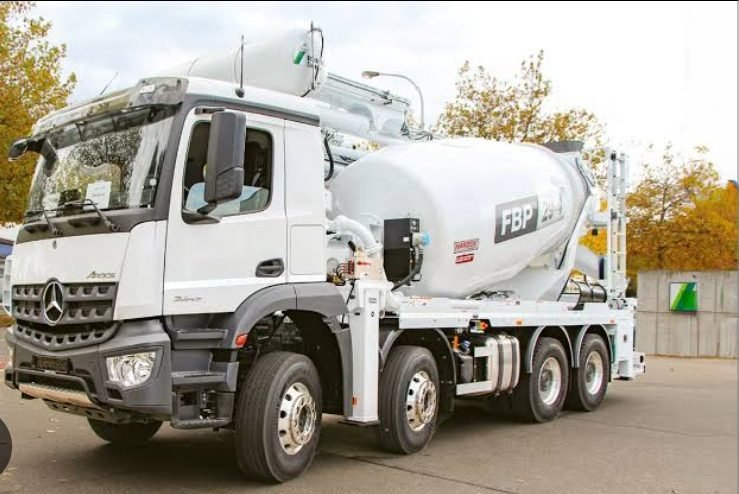Table of Contents
Flexible Concrete Trailers: A boon for diverse construction tasks. Compact, portable, and high capacity for any project.
In the dynamic world of construction, adaptability and versatility in materials and equipment play a pivotal role in meeting the diverse needs of different projects. The emergence of flexible concrete trailers has revolutionized how concrete is transported, offering a portable, efficient, and adaptable solution for various construction tasks. These trailers have transformed the traditional concrete delivery methods, allowing for increased flexibility and convenience on construction sites.

Flexible Concrete Trailers
Understanding Flexible Concrete Trailers
Overview
Flexible concrete trailers are mobile units equipped with mixing capabilities that enable the production of fresh concrete on-site. These trailers typically consist of a mixing drum, water tank, cement, aggregate, and admixture compartments, all mounted on a trailer chassis. The equipment is designed to produce specific quantities of concrete as required, offering adaptability and immediate accessibility.
Advantages
On-Demand Production
Flexible concrete trailers offer the advantage of producing concrete on demand. Contractors can mix the precise amount of concrete needed for the task, reducing waste and ensuring the material’s freshness and quality.
Mobility and Accessibility
Being mounted on trailers, these units are highly mobiletrailers, these units are highly mobile. They can access various locations within a construction site, even in challenging terrains or confined spaces where traditional concrete trucks might face difficulty reaching.
Customization and Adaptability
The flexibility of these trailers allows for the customization of concrete mixes to suit different project requirements. Contractors can adjust mix designs, consistency, and quantities on-site, catering to varied construction needs.
Time and Cost Efficiency
Flexible concrete trailers save time and reduce transportation costs by eliminating the need for multiple deliveries from concrete plants. They streamline the construction process by providing immediate access to freshly mixed concrete.
Applications and Versatility
Remote or Small-Scale Projects
Flexible concrete trailers are particularly advantageous for remote or smaller-scale projects where traditional concrete delivery methods might be impractical. These trailers can reach locations with limited access and deliver precisely the concrete required.
Renovations and Repairs
These trailers offer an ideal solution for renovations or repair works within existing structures, where access might be limited or where smaller quantities of concrete are needed. They provide flexibility in delivering concrete to specific areas without disrupting the surroundings.
Field Machining
In addition to their versatility in remote, small-scale renovation and repair projects, flexible concrete trailers are also advantageous in field machining contexts. Field machining refers to the on-site fabrication or repair of large industrial machinery or structures, often requiring precise quantities of concrete. In this setting, these trailers can provide on-demand, customizable concrete mixes, mitigating the complexity of logistics associated with concrete supply.
Overcoming Challenges
Technical Expertise
Operating and managing these trailers requires technical expertise. Providing comprehensive training and guidance to personnel ensures safe and efficient operation.
Maintenance
Regular maintenance and servicing are essential to keep the equipment in optimal condition. Establishing maintenance schedules and protocols is crucial to prevent breakdowns.
Regulatory Compliance
Adhering to safety and environmental regulations is paramount. Ensuring that the equipment and operations comply with local regulations is necessary for seamless operation.
Embracing Innovation in Construction
Industry Collaboration
Collaboration among equipment manufacturers, construction companies, and regulatory bodies fosters innovation. Continuous improvement in trailer design, technology, and operational standards enhances their efficiency and safety.
Education and Awareness
Educational initiatives highlighting the benefits and applications of flexible concrete trailers encourage their adoption. Creating awareness among construction professionals promotes their utilization of diverse projects.
Sustainable Practices
Incorporating eco-friendly practices, such as using recycled materials in concrete mixes produced by these trailers, aligns with sustainability goals and reduces environmental impact.
Future Trends: The Next Wave in Flexible Concrete Delivery
As technological advancements continue to reshape the construction industry, the evolution of flexible concrete trailers offers promising prospects.
Digital Integration
Integrating digital technologies like IoT and AI into these trailers could enable real-time tracking of concrete production and delivery, enhancing operational efficiency and quality control. Predictive analytics and machine learning algorithms can optimize concrete mix designs and delivery schedules, improving project outcomes.
Autonomous Operation
The advent of autonomous vehicles points towards the potential for self-driving concrete trailers. These could dramatically increase safety and efficiency on construction sites, eliminating human error and potentially operating around the clock.
Advanced Materials
Exploring novel materials and additives for concrete mixes produced by these trailers could lead to more durable, cost-effective, and environmentally friendly construction solutions. These could include self-healing concrete, ultra-high performance concrete (UHPC), and concrete incorporating recycled or bio-based materials.
Flexible concrete trailers have emerged as a game-changer in the construction industry, offering an adaptable and efficient solution for concrete delivery. Their mobility, versatility, and ability to produce concrete on-site address various challenges faced in construction projects. By embracing these innovations, construction companies can enhance efficiency, reduce waste, and meet the diverse demands of modern construction, ultimately contributing to more agile and sustainable building practices.

